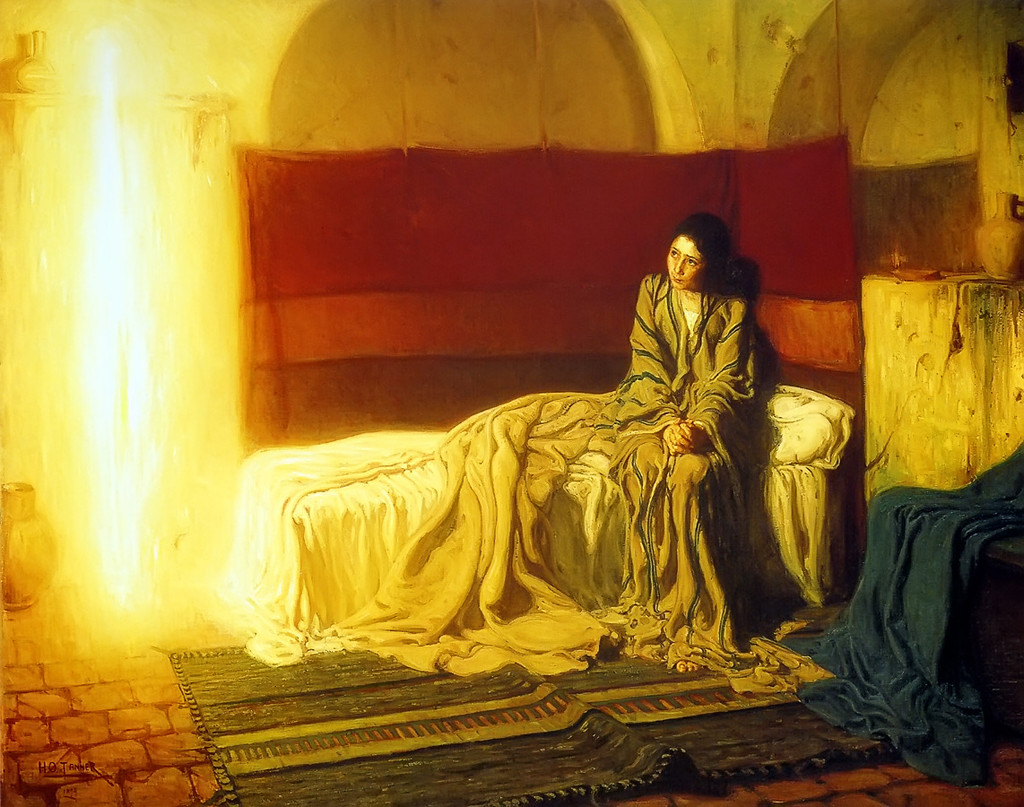
(From Wikimedia Commons)
Students of Renaissance English poetry all get to know John Donne, that 16th/17th century priest and poet who vacillated painfully between whether to remain with the Church of England or to be a Catholic. He also vacillated between a life of devotion and the passions which afflict us all since the Fall. And his poetry reflects all this struggle. To my mind, perhaps his most perfect work is in his Holy Sonnets.
One set of those sonnets is a telling of the life of Christ in a sequence of seven, entitled La Corona (“The Crown”). The final line of each sonnet is also the first of the next, with the first line of the whole sequence being repeated as the final line of the last sonnet.
The second sonnet in the series is simply “The Annunciation.” Here it is in its entirety:
Salvation to all that will is nigh;
That All, which always is all everywhere,
Which cannot sin, and yet all sins must bear,
Which cannot die, yet cannot choose but die,
Lo! faithful Virgin, yields Himself to lie
In prison, in thy womb; and though He there
Can take no sin, nor thou give, yet He’ll wear,
Taken from thence, flesh, which death’s force may try.
Ere by the spheres time was created thou
Wast in His mind, who is thy Son, and Brother;
Whom thou conceivest, conceived; yea, thou art now
Thy Maker’s maker, and thy Father’s mother,
Thou hast light in dark, and shutt’st in little room
Immensity, cloister’d in thy dear womb.
You may also find interesting “The Annunciation and Passion,” written for the coincidence of the feast of the Annunciation with Holy Friday (thus, the references to both feasting and fasting).
And here is a sermon from 2012 which I wrote for the feast.




I imagine Donne could read Greek.
“Immensity, cloister’d in thy dear womb.” Oh yeah- nice English riff on the Platytera ton Ouranion. I cover it every year in 6th grade catechism: http://platytera.blogspot.com/2012/01/fine-art-5-more-spacious-than-tea-party.html
Ouranon. Oops.